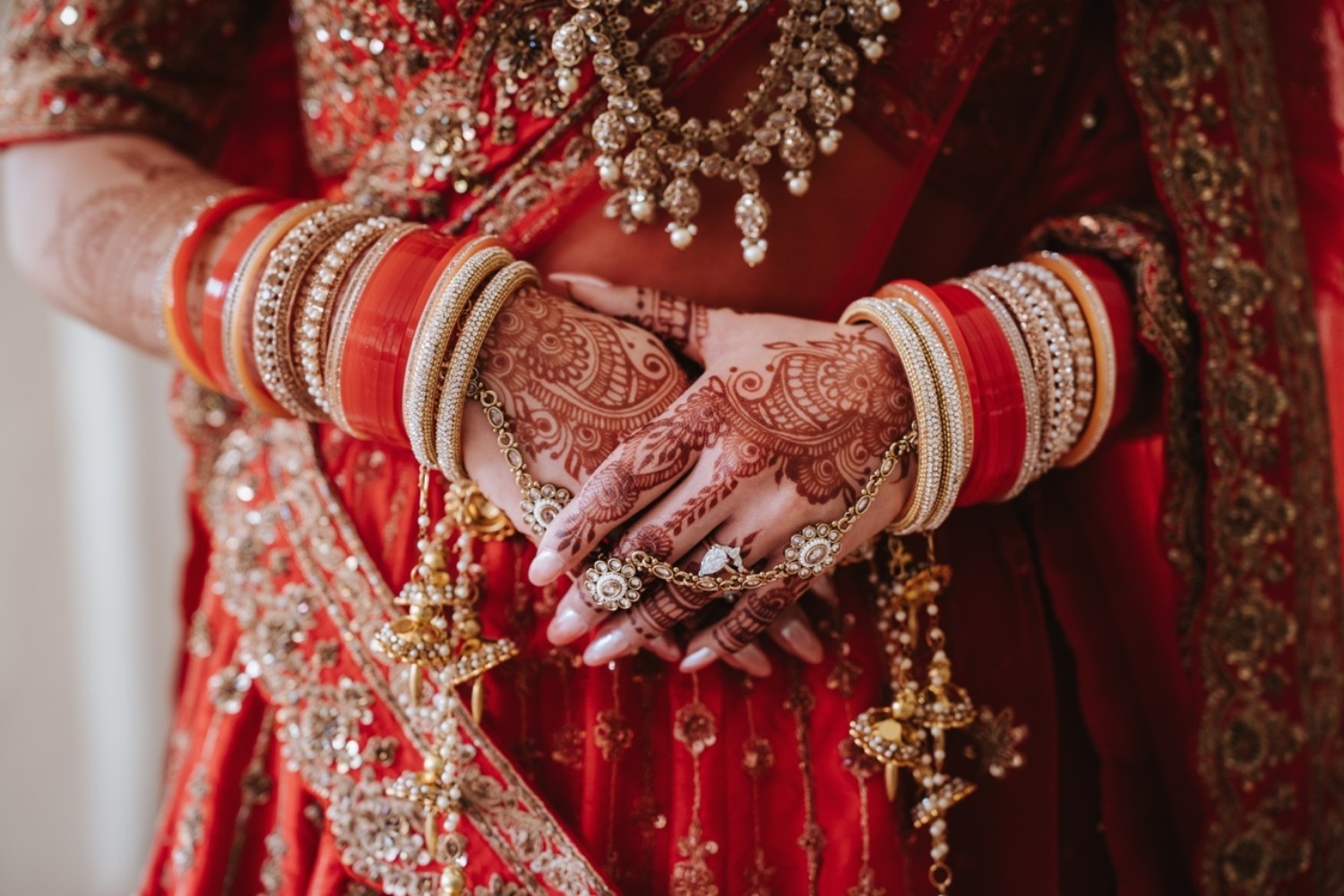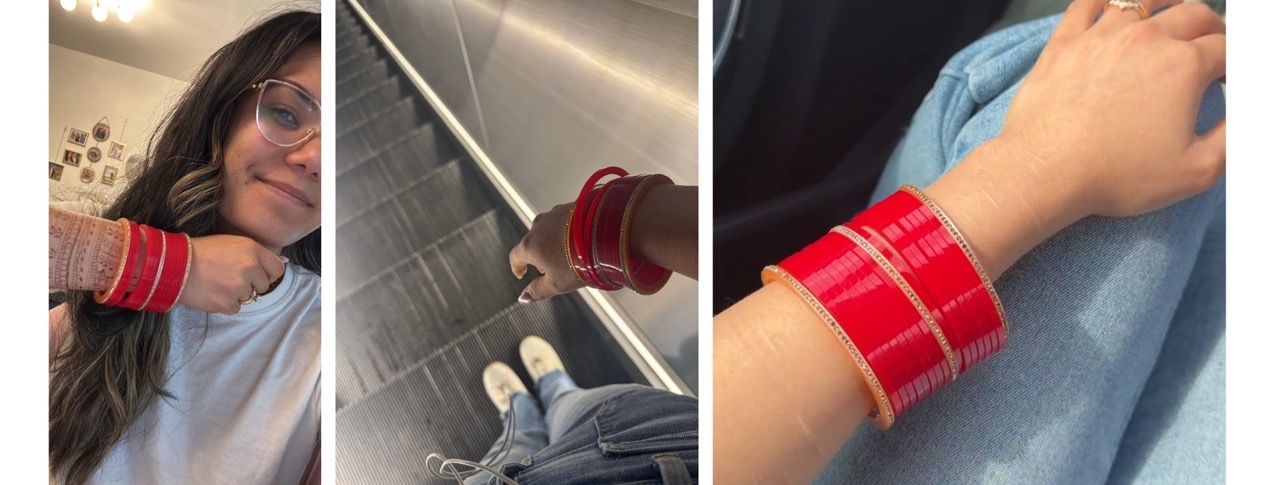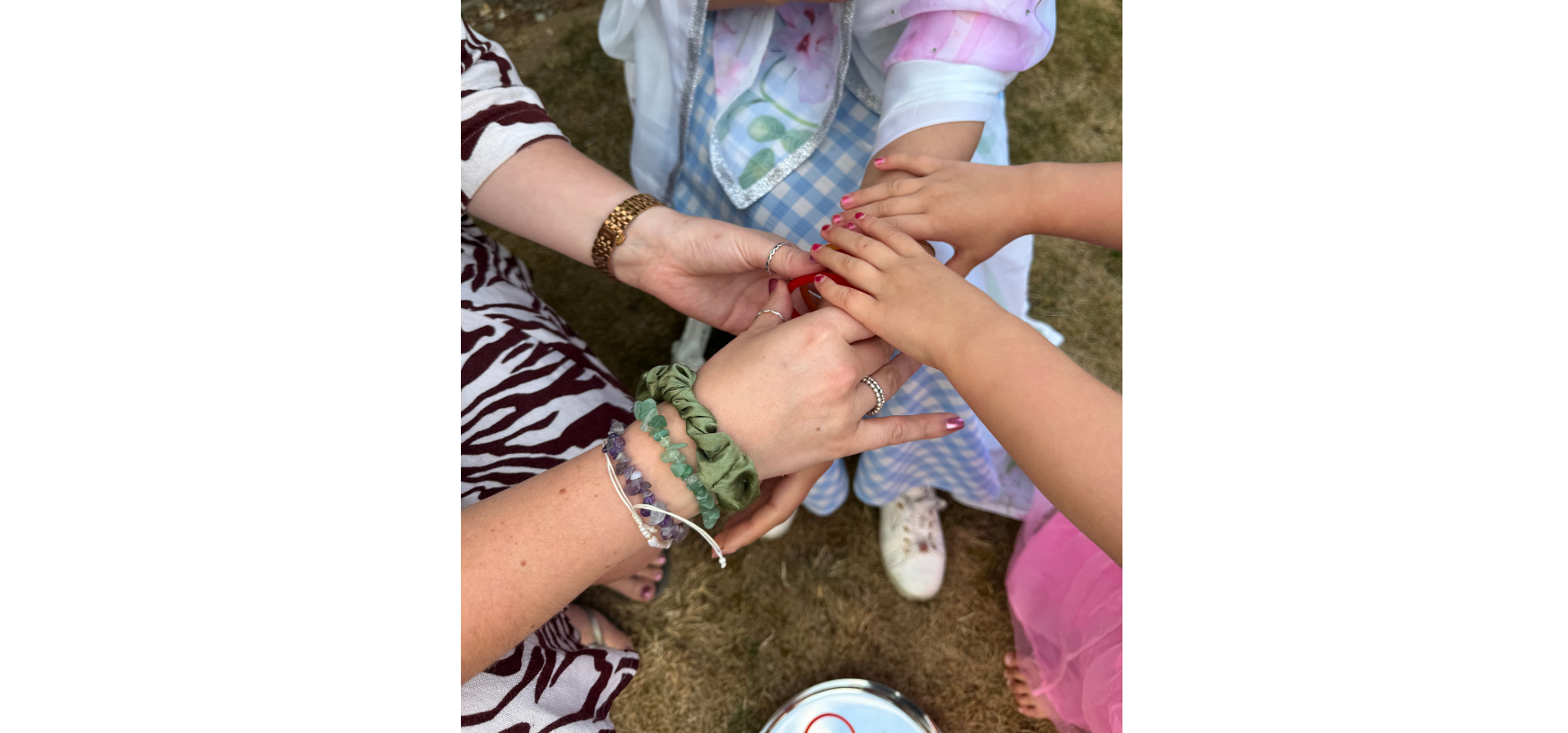
If you’ve seen me in person recently, you might have noticed I’ve been wearing red bangles. These are the bridal choora Punjabi brides (and some other North Indian communities) wear, typically for at least 40 days after their wedding. This weekend, I took them off, which had me reflecting on their significance, and whether there are any lessons they offer when it comes to how we think about behaviour change.
Bridal choora signify marital status, commitment, new beginnings, and good luck. Traditionally, brides would’ve worn their choora for up to a year, taking them off on their wedding anniversary. But in today’s world, particularly for working women, the 40 day minimum has become the norm (I don’t think I could manage typing with bangles on for a whole year!).

For many brides, wearing the choora marks a transitional period. Historically, getting married would’ve seen you leave your childhood home and move into a new family home with your husband. The choora would act as a visible reminder and cue to those around you that you were in a moment of transition. You would be treated with extra kindness (and you also got out of doing any housework whilst wearing them).
For me, and many who already lived with our partners before marrying, the choora more resemble an internal transition and are a way of holding onto cultural traditions. Though, I did try to get out of housework and wasn’t successful.
Whilst my day-to-day hasn’t radically changed after getting married, I am undoubtedly in a new phase of my life. In my reflections, I couldn’t help but notice how wearing choora signifies the realities of meaningful and long-term behaviour change. Change doesn’t happen overnight - when implementing a new system, policy, or intervention, a lot goes into designing it and making the practicalities of it happen. Some might assume once it’s in place, people will adopt it straight away. What actually happens is that every behaviour change needs a period of transition. Time for people to adjust and learn new habits for change to truly take hold.
At Behaviour Change, we know how important it is to support people through transitions. Change doesn’t happen the moment someone decides to do something differently - it happens in the days, weeks or even months that follow. This is the period of time we must intervene and facilitate, using behavioural tools to support people on this journey, and recognising that people make mistakes.
Wearing choora is in many ways my own 40-day marriage pilot. A period of time for me to grow into a new identity and way I think about my future. It took me a few weeks to get used to introducing myself with my new double-barrelled surname - but as my 40 days came to a close, I noticed this become much more natural.
Many organisations are gearing up to adopt imminent and predicted changes to policy in a drive to meet sustainability targets, and where behaviour change is an essential part. If too much focus is on the end goal without thinking about the transition it takes to get there, these changes may fall short. If we want people to truly adopt these new ways of doing things, we need to build space for this adjustment period and provide tools to support them. At Behaviour Change, we help organisations design for long-term behaviour change - get in touch to see how we can help you.

Photo: My sister-in-law and niece taking off my choora over the weekend
Share
RELATED ARTICLES
Life at Behaviour Change

Behind the scenes of 2025 at Behaviour Change
Looking behind the scenes at 2025's biggest successes
10/12/25
Read moreSustainability

What AI and climate change have in common
The unsettling parallels between AI and climate change (and how to stop history repeating itself)
23/04/25
Read moreBehavioural science

Exploring Behavioural Justice
Honica explores the concept of behavioural justice in the next blog in our Inclusive Approaches series.
26/02/25
Read more